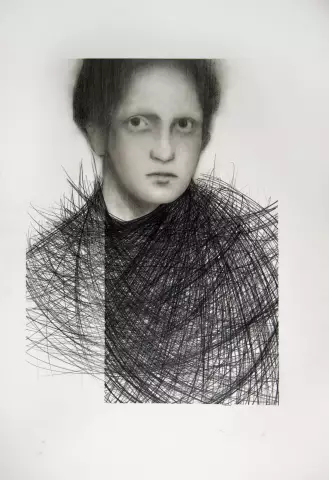- Author Rachel Wainwright wainwright@abchealthonline.com.
- Public 2023-12-15 07:39.
- Last modified 2025-11-02 20:14.
Painful periods

Menstruation is a natural process that occurs every month in women. The onset of menstruation confirms that the woman is at puberty. This process is completely natural, and every woman should accept and get used to it. But it's not that simple. It happens that a woman looks forward to these days with horror, because she has painful periods.
In general, menstruation should not cause much discomfort to a woman. However, pain during menstruation is a kind of signal that something is wrong with the female body. The causes of painful periods should be known to every woman who has reached childbearing age.
Causes of painful periods
What is the cause of algodismenorrhea (painful periods)? The discharge of menstrual blood and endometrium occurs due to the intense contractions of the uterus. When something interferes with this process, pain occurs during menstruation. A woman usually experiences the most painful sensations on the first or second day of her period.
The most common reason why menstruation is painful is the misalignment of the uterus. It compresses the nerve endings, which contributes to the occurrence of pain in the sacrum, lower back and lower abdomen. This condition can be either congenital or acquired as a result of various inflammatory processes in the uterus, ovaries and fallopian tubes.
Also, the level of hormones in the body affects the intensity of uterine contraction and a woman's susceptibility to pain. Often, women over the age of 30 have very painful periods, which are the result of an increased level of the female sex hormone - estrogen.
For rhythmic contractions of the uterus during menstruation, special chemicals are responsible - prostaglandins. The higher their level, the more often and stronger the uterine contractions occur. This is why painful periods often occur with elevated levels of prostaglandins. Painful sensations are often accompanied by diarrhea, nausea, headache, and general poor health of the woman.
Why do painful periods still occur? This often happens due to a malfunction of the adrenal glands and thyroid gland. But in these cases, a woman suffers not only from pain during menstruation, but also from premenstrual syndrome.
If young women who have not yet given birth complain of very painful periods, this may indicate infertility.
The reason for painful periods can also be the use of an intrauterine device by a woman as a means of preventing unwanted pregnancy. Since the intrauterine device is a foreign body, the body often tries to "get rid" of it. In addition, the coil promotes increased production of prostaglandins in the uterine mucosa.
Pain during menstruation is often a symptom of chronic inflammatory diseases of the female genital area: inflammation of the ovaries, endometriosis, colpitis, inflammation of the fallopian tubes, etc.
It happens that algodismenorrhea is caused by a genetic factor, when many women in the family suffered from this ailment.
Symptoms of painful periods
Algodismenorrhea is the most common gynecological disease. According to statistics, every second woman experienced pain during menstruation. Moreover, often painful periods are manifested not only in pain in the abdomen, lower back, sacrum, but also accompanied by other disorders of the body: nausea and vomiting, headaches, irritability, fainting, pain in the legs, etc.

If a woman's periods are painful on a regular basis, then often all these symptoms are a consequence of the fact that a woman spends a whole month in tense anticipation of the next menstruation and perceives it as a disaster that cannot be avoided. That is, the psychological factor also plays an important role.
For what symptoms should you consult a gynecologist?
- During menstruation, the pain increases sharply and is accompanied by very profuse bleeding.
- Less pain during menstruation than usual.
- Menstruation is accompanied by an increase in body temperature, chills, sweating, which may indicate an inflammatory process.
- The discharge is unusual, has a pungent smell and an unusual color. During urination, the woman feels pain and burning. These symptoms may indicate the presence of an infection in the body.
When should you call an ambulance?
- Severe dizziness, loss of consciousness.
- Sharp severe pain in the lower abdomen, which does not allow getting out of bed.
- The appearance in the menstrual blood of pieces of tissue of a grayish or silver color.
- If your period went during pregnancy.
Diagnosis of painful periods
To diagnose algodismenorrhea, a woman must answer a gynecologist to a number of questions:
- What is the nature of the pain, how is it associated with menstruation and when does it start?
- Does a woman have an active sex life and how often does she reach orgasm?
- Does she have a regular menstrual cycle?
- Does a woman feel pain during intercourse?
- What methods does a woman use to prevent unwanted pregnancy?
- Does the woman currently have inflammatory gynecological diseases and have they been in the past?
- Does a woman suffer from infertility?
Every woman should understand that painful periods are not only unpleasant sensations, but also evidence that some disturbances are taking place in the body. Therefore, with algodismenorrhea, it is necessary to consult a doctor who will help identify its cause and prescribe the appropriate treatment.
Found a mistake in the text? Select it and press Ctrl + Enter.






